Company Registration In Vietnam
- 24/12/2021

 CONTENT
CONTENT
 CONTENT
CONTENT
When Expat want invest and Open a business in Vietnam, Expat need How to company registration in vietnam, LHD Law Firm will help foreign investors register their own company in Vietnam. Our corporate establishment and licensing services are designed around simple and practical advice, with clear processes from start to finish.
LHD Law Firm will guide investors through the government requirements, removing the confusion and providing clarity for what can be an otherwise drawn-out process for starting a business, so that your Vietnamese company is established and ready for you to operate.
A. Foreign Direct Investment
From 1 July 2006, the Unified Law on Enterprises 2005 ("ULE") and Common Law on Investment 2005 ("CLI") replaces the Law on Foreign Investment in Vietnam ("FIL") and governing the foreign direct (and indirect) investment in Vietnam. To bring the twin laws into practice, about 7 Government decrees and a greater number of lower level legal documents will be soon issued, covering all aspects of the entire process from the business registration to the business operations.
Like the FIL, the ULE and CLI continuously confirm to guarantee the legal capital and assets of foreign investors, and allows foreigners to invest in most sectors of the economy, particularly in sectors of export-oriented, agricultural activities, new materials, high technology, development research, environment protection, and others of similar nature.
5.2 Vehicles of Foreign Direct Investment
Under the ULE and CLI, foreign investors are entitled to select one of the following vehicles or forms for their investment in Vietnam:
(ii) Limited Liability Company, with One or More Members ("LLC");
(iii) Joint Stock Company ("JSC");
(iv) BOT;
(v) BTO; and
(vi) BT
It is worthy of note that for any new establishment of LLC or JSC, it is required to attached the establishment to an investment project. In this case, an investment registration certificate shall be issued to the newly established LLC or JSC, which serve at the same time as the business registration certificate of the LLC or JSC.
Details concerning each vehicle are described hereunder.
(i) BCC
BCC is a partnership signed by two or more parties with the objective of conducting jointly one or more business operations in Vietnam, on the basis of mutual allocation or responsibilities and sharing of profits or losses, without creating or forming a legal entity in Vietnam.
As BCC is not a separate legal entity, the contractual rights and obligations of the parties must be shared. To co-ordinate the daily operation of a BCC, a co-ordination board can be set up when necessary, with presence of the equal nominees from the parties.
(ii) LLC
LLC is established by a single investor or pursuant to a joint venture contract signed by one or more investors, either Vietnamese investors and one or more foreign investors; or between foreign investors, individually or institutionally, for the purpose of carrying out business activities in Vietnam. The difference of the LLC compared with the JSC is that the LLC is not permitted to issue shares, and the number of investors, regardless individual or institutional, is not allowed to be excessive of 50.
Unlike the FIL, the ULE and CLI introduce the term of "charter capital" for replacement of the confused "legal capital", and do not require the ratio between the charter capital of the LLC per the invested capital of their investment project being at least 30%. It seems that foreign investors will have more choice in making their contributions to the charter capital in cash or in kinds compared with the FIL, and that there is no floor limits of the foreign investors in the charter capital of the LLC (pursuant to the FIL, the contribution by the foreign investors is required to be at least 30% of the company’s charter capital.
Unlike the FIL where the JVC or FOC is managed by the Board of Management ("BOM"), and members are nominated by the parties in proportion to their contributions, under the ULE and CLI, the LLC shall be managed by the Member Council, then the BOM if the number of investors in the LLC requires so. The general director shall be responsible before the BOM and Member Council, for the day-to-day management and business of the LLC. No specific regulations on the nationality of the general director and the first deputy general director in the LLC are provided, and the unanimous agreement/ voting on some matters of the LLC (i.e. revising the charter, appointing the general director, etc.) shall be no longer valid. Instead of those, the voting principles by the majority of 65% and/ or 75% shall be applicable in the Member Council.
(iii) JSC
JSC is a company established by at least 3 investors, regardless individual or institutional, local or foreign. Differing from the LLC, JSC can issue shares to the public. JSC is a kind of limited liability company, and has the legal person status in accordance with the laws of Vietnam.
Like LLC, the specific requirements of the ratio of the charter capital of the JSC per the invested capital for the investment projects by the JSC (i.e. 30%) and the same of the contributions by the foreign investors in charter capital (i.e. 30%), shall be no longer valid.
Similarly, the LLC, the highest management authority of a JSC is the general shareholder meeting, which decides all the most principal matters of the company. The BOM is responsible for implementation of the general shareholder meeting between the two meetings. The general director is responsible to the general shareholder meeting and BOM for the day-to-day management and business of the JSC. Assisting the general shareholder meeting in supervising the performance of the BOM, general director, and other the management positions is the Board of Supervision.
Finally, voting principles by majority of 65% and/or 75% shall apply in the general shareholder meeting in JSC.
(iv) BOT, BTO, and BT
Compared to the said vehicles, regulations covering BOT, BTO and BT are quite few, causing difficulties for implementing.
A written contract which must be signed by foreign investor(s) and an authorized agency, constitutes the principal legal basis for implementing a BOT, BTO or BT project. It differs from BOT to BTO in the right to commercial exploitation of the completed project for getting back investments. This right is realized for a fixed time before transferring to the State of Vietnam in the case of BOT, but in the case of BTO, it follows after transferring. As for BT, foreign investor(s) must hand over the project to the State of Vietnam upon its completion, and instead of commercial exploitation like the case of BOT and BTO, foreign investor(s) is/are provided with opportunities to carry out other projects to get back investments.
In all and every case, an LLC or JSC can be established by foreign investor(s) to carry out the project, in accordance with applicable procedures as described hereof.
5.3 Project Classification and Licensing Agencies
Unlike the FIL, the projects under the CLI are classified into two groups, requesting the registration procedures and appraisal procedures. More decentralized, all projects (except BOT, BTO and BT projects to which MPI will issue the Investment certificates) are approved and licensed by city/province-level people's committees with respect to projects outside EPZs and IZs, and city/province-level administration boards of EPZs and IZs with respect to projects inside EPZs and IZs.
5.4 Application Document Requirement
An application/ registration file for submission to investment registration agencies, under the CLI, normally includes:
(i)Application for investment certificate;
(ii)BCC or JV contract, as the case may be
(iii)Charter of LLC or JSC, as the case may be
(iv)Technical-economic explanation or feasibility study for a BCC, LLC or JSC;
(v)Statements certifying the legal status and financial capacity of investors; and
(vi)Explanation satisfaction of WTO's requirements.
The Vietnamese language is lawfully required, but a widely-used foreign language may also be accompanied, for instance, English. In principle, the two languages have equal legal weight in determining the parties' intentions, but in case of discrepancies, the Vietnamese shall prevail.
5.5 Licensing Procedures and Timing
All the new establishment of LLCs, JSCs, BCCs, BOTs, BTOsand BTs are required to get investment certificate. The licensing procedures and timing for obtaining the certificates are in the same and described hereunder.
With respect to projects subject to the investment appraisal procedures, the time limit for issuance of an investment registration certificate shall be normally within 30 days from its receipt of the satisfactory files, and in special cases the time can be extended but not exceeding 45 days.
With respect to projects subject to the investment registration procedures, the investment certificates shall be issued within 30 days from the receipt of the satisfactory file

B. About LHD Law Firm
the water. Staff of the company was rated very professionally. We are very self-trench when working with large corporations in the world and the leading company in Vi et Nam. Experienced, knowledgeable Vietnam law, a deep understanding of style
customs, culture, and people of Vietnam, capture customer psychology, foreign language proficiency is the key to success in almost ten years LHD and future l anybody.
LHD law Firm is a leading commercial law firm in Vietnam providing business legal services, investment consulting, and other business support service (company formation, license arrangement, commercial agreements, mergers and acquisitions, shareholder arrangements and disputes, work permit, employment contracts, tax, consulting and financial advisory and executive search services.


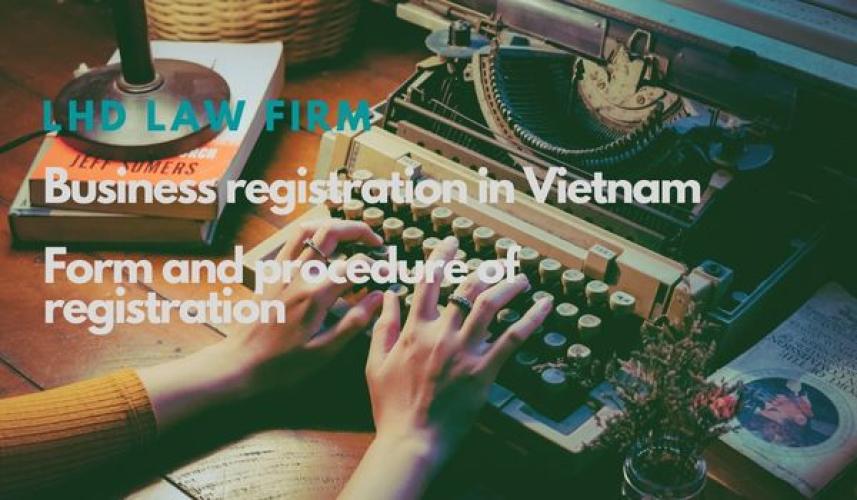
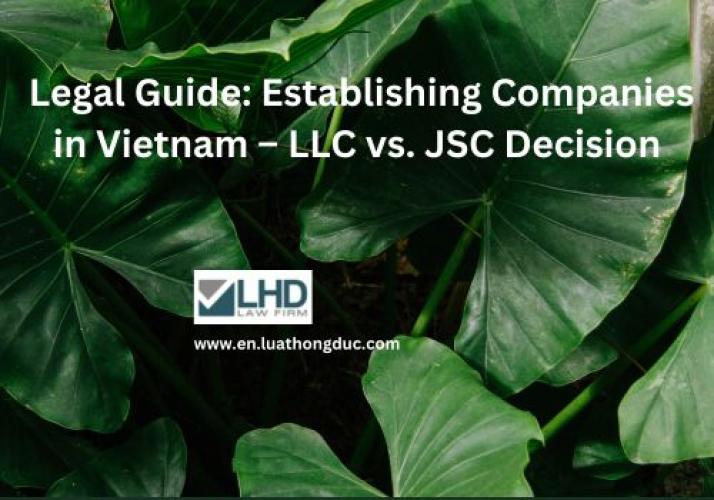


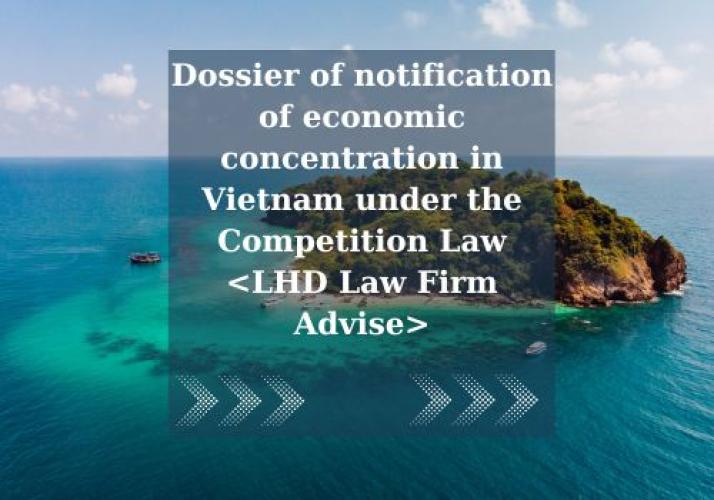
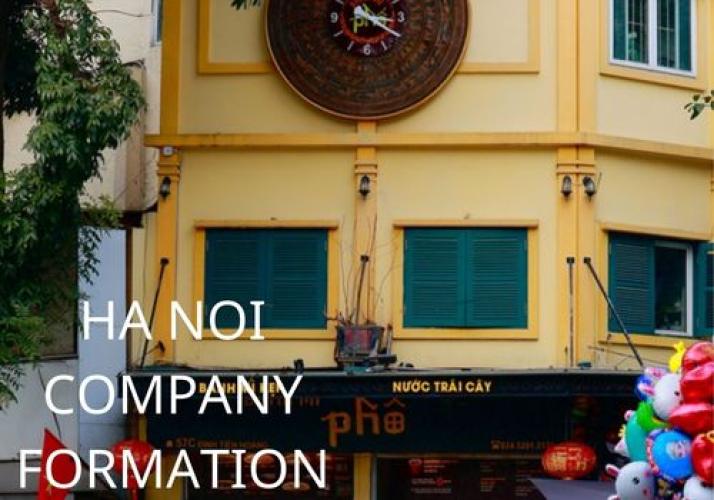
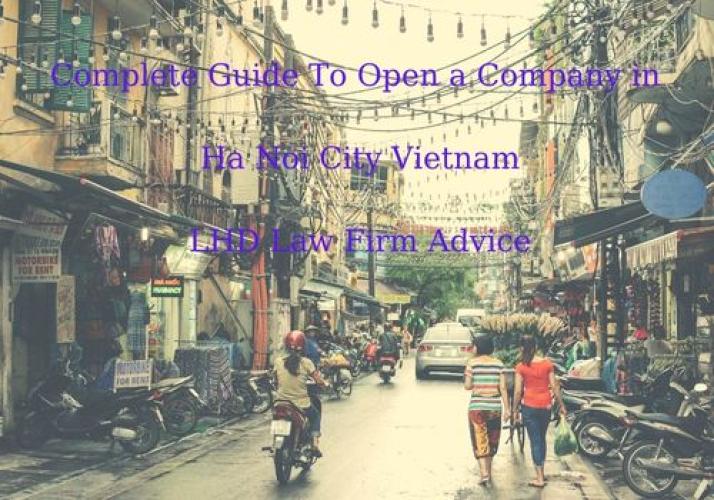
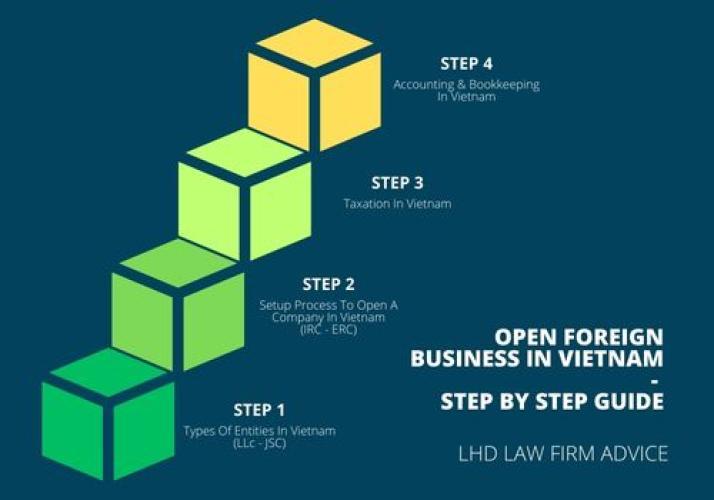
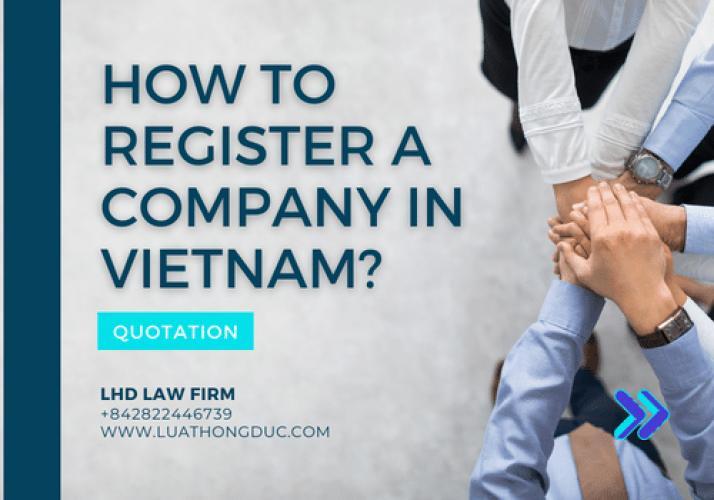
0 comment